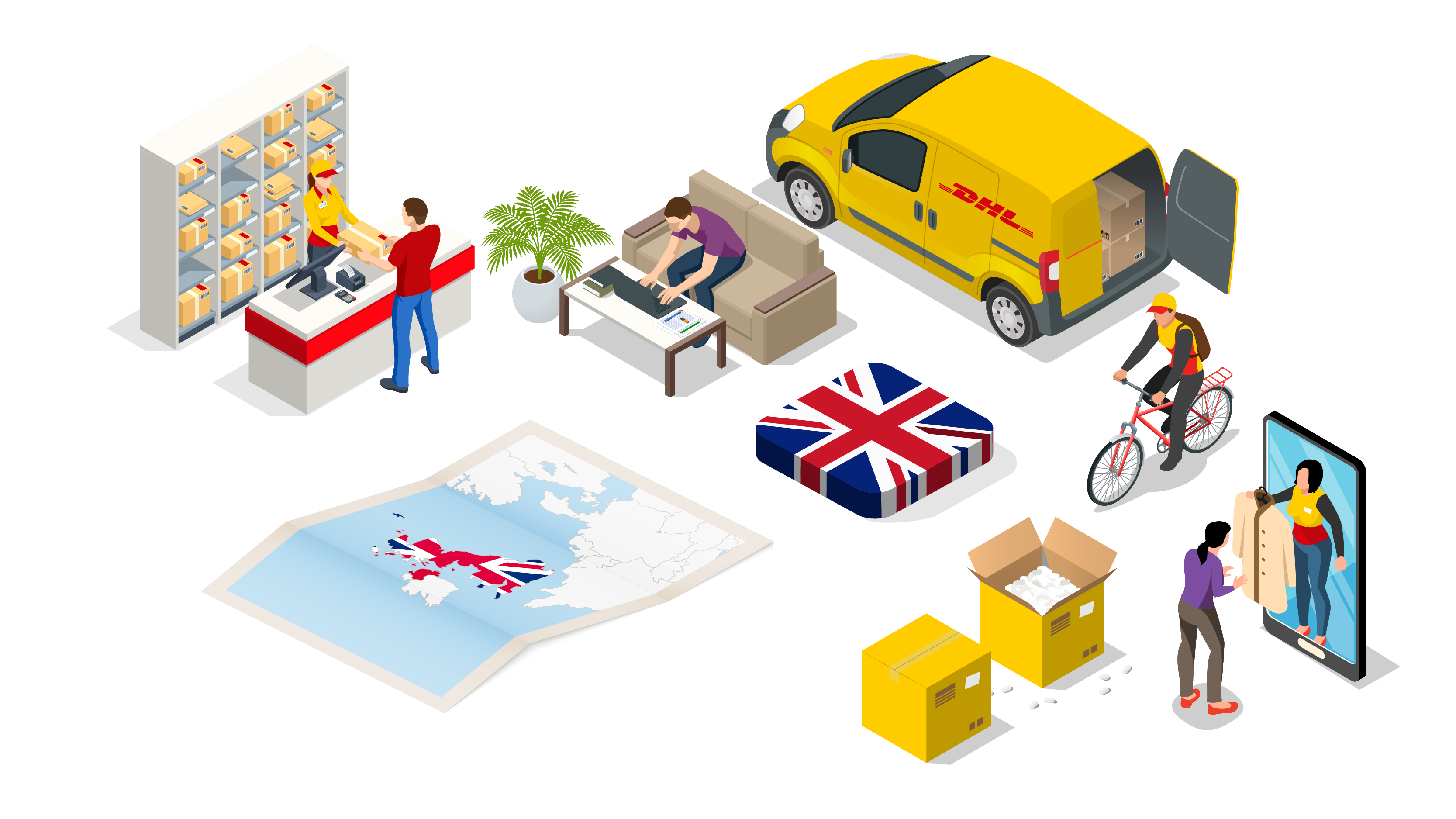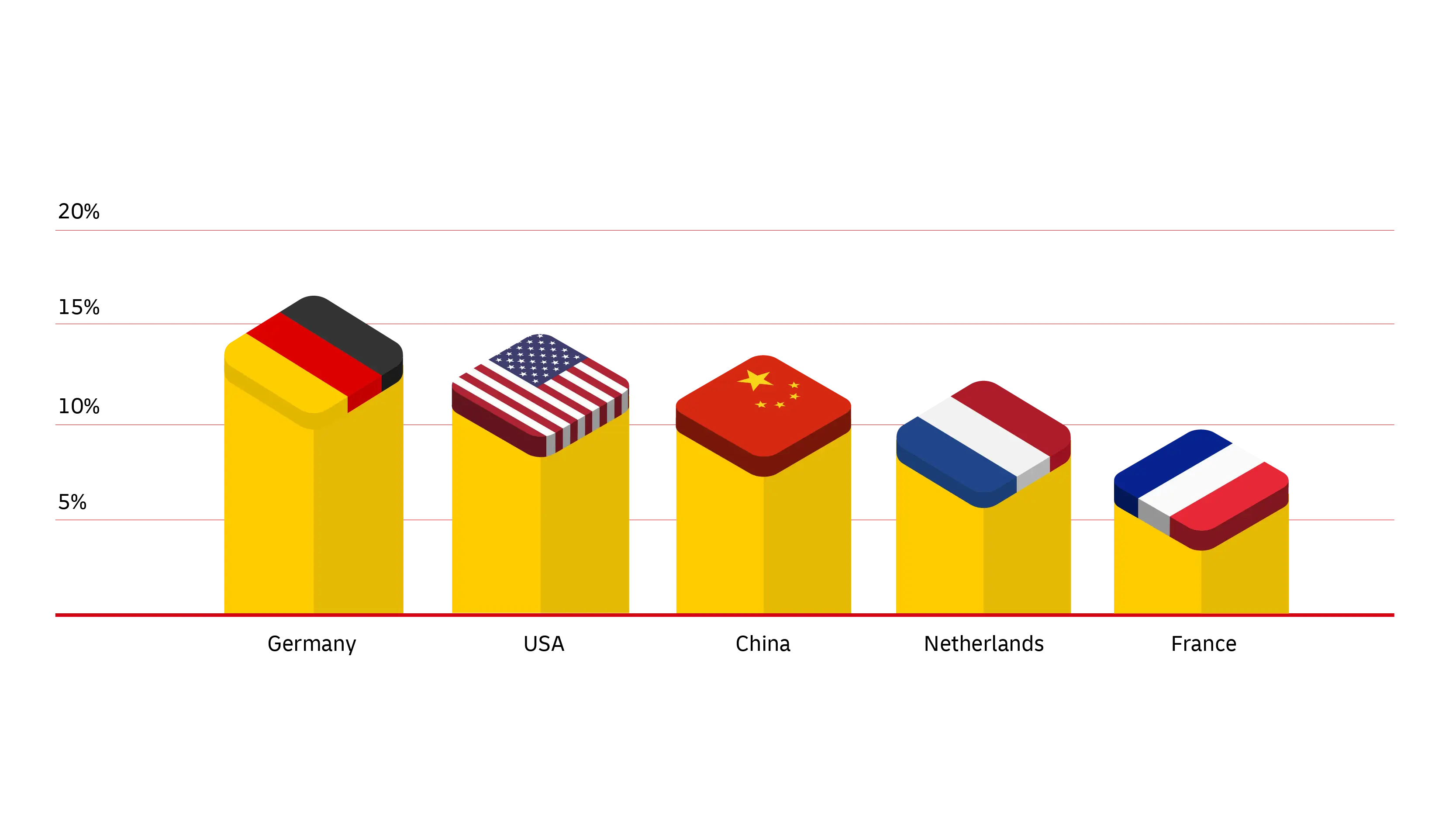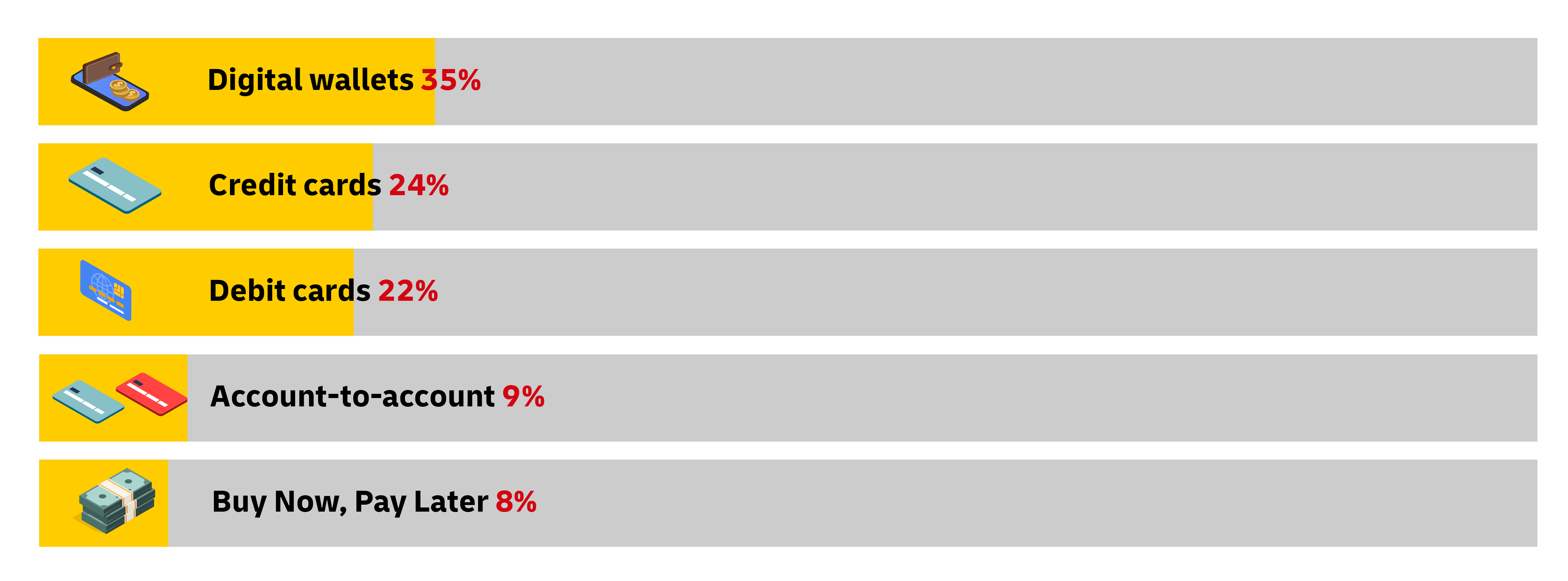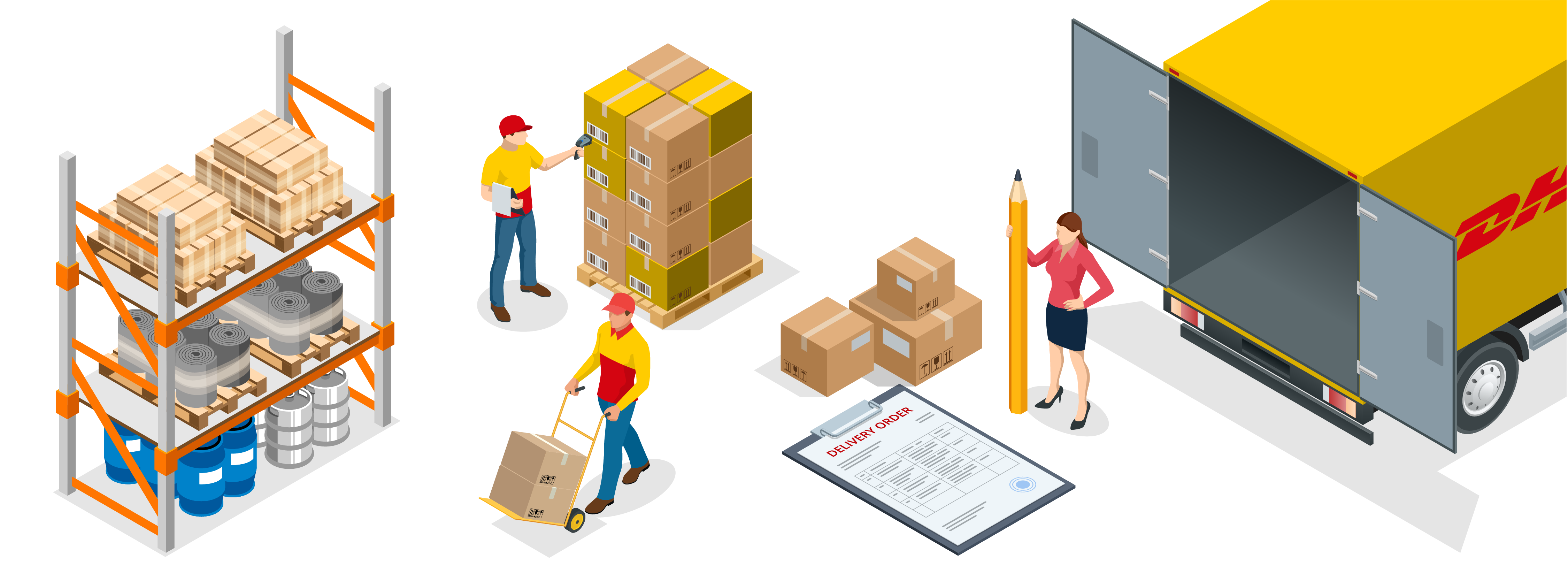Looking for new cross-border markets to target? Then look no further than Europe’s online shopping capital – the UK. In 2022, it emerged as the continent’s leading e-commerce market, in terms of both GDP share and total revenue1 – so doing business in the UK could prove to be a very lucrative decision. With an international shipping partner, you’ll be ready to cash in!
Read on as we explore how to export to the UK, including the local market insights and customs knowledge that will put your business on the path to success.
DOING BUSINESS IN THE UK: MARKET OVERVIEW

A thriving e-commerce market
In 2023, the overall revenue of the UK’s e-commerce industry reached US$131.5 billion(2) – amounting to 38.1% of the country’s total retail sales(3).

A nation of online shopping lovers
In 2023, the UK was expected to have had nearly 60 million e-commerce users(4). With a current population of 67.8 million(5), that’s an impressive proportion!

Further growth on the horizon
The coronavirus expedited the UK e-commerce market's growth(6), and the increase is expected to continue over the next several years across all product categories(7). By 2028, overall revenue is forecast to reach US$185.37 billion(8).
Where does the UK import from the most?
31% of UK online shoppers buy from cross-border brands, making it an attractive prospect for international brands looking for new markets to target.
UK’s leading import markets for goods9 (% of total goods imports)
CONSUMER TRENDS
Where do consumers in the UK shop online?
Online marketplaces can be a helpful gateway for cross-border businesses wishing to sell to a new country for the first time.
Leading online marketplaces in the UK, as of April 202310 (By monthly visits, in millions)
Amazon: 328.1
eBay: 218.8
ASOS: 70.8
Wayfair: 10.5
Vinted: 9
Add social commerce to your sales strategy, too: 44% of UK consumers have purchased through social media platforms, with Facebook, YouTube and Instagram leading the way11.
What are they buying?
Most popular e-commerce segments in the UK in 202212 (By market share)
How do UK consumers like to pay for their online purchases?
After all, e-commerce shoppers are more likely to abandon their carts if they cannot pay using their preferred payment method.
Distribution of e-commerce spending in the UK in 2022, by method of payment13
What do UK consumers care about when shopping online?

Value for money
In DHL’s 2023 European Shopper Survey(14), UK consumers were asked their main reasons for buying from other countries. The leading answer? “Lower price” – cited by 45% of respondents. A competitive pricing strategy will help your business stand out. If you can afford to offer free shipping too, all the better.

Fast shipping
In the same survey, half of respondents said “longer delivery time” was a deterrent for shopping cross-border. Partner with an international shipping expert and be clear about your express delivery options on your website (including the homepage) to reassure potential customers.

Flexible delivery
UK consumers have high expectations when it comes to delivery – over half (53%) would abandon a purchase if they were unhappy with the delivery options available(15). Boost your conversion rate at checkout with On Demand Delivery, which lets customers choose exactly when and where their orders are delivered, with full tracking too.
Leading shopping holidays in the UK
Be sure to add these dates to your marketing and sales calendar so your business can prepare and cash in!
Mother’s Day, March
A time for people to spoil their mothers with cards and gifts.
Father’s Day, June
And not forgetting the dads! Their day to be celebrated falls in June.
Amazon Prime Day, July
Selling on Amazon? Then this day is likely already marked out in your calendar. Prepare to roll out some big discounts!
Black Friday/Cyber Monday weekend, November
Like many other countries, the UK participates in this sales bonanza. Competition is fierce, so be ready to offer significant discounts to attract bargain hunters.
Christmas Day, December 25
For many e-commerce businesses, December is their biggest month. Don’t forget about the last-minute shoppers either – offering next-day shipping will help you win some extra sales, even in the final days. Thereafter, Boxing Day (December 26) and January sales are the perfect opportunities to shift any leftover stock.
ENTERING THE MARKET
Exporting to the UK: required documentation
When shipping internationally, there are several pieces of documentation commonly required to clear your goods through customs smoothly and help authorities determine what import taxes and duties are due:
- Commercial Invoice
- Waybill
- Certificate of Origin (if claiming preferential customs rates)
- Export and Import Licenses (check if your product needs them)
This dedicated guide goes into detail on each document, including what information you’ll need to complete it.
Prohibited and restricted commodities
Several commodities are not permitted for shipment by DHL under any circumstances, following full consideration by the operational, legal and risk management teams. They include animals, hazardous or combustible materials, and illegal narcotics. The full list can be found here.
Doing business in the UK: useful resources
- International Trade Administration – UK Commercial Country Guide: https://www.trade.gov/country-commercial-guides/united-kingdom-import-requirements-and-documentation
- UK Government’s step-by-step guide for imports: https://www.gov.uk/import-goods-into-uk
- UK Government’s Trade Tariff, which confirms the duty and VAT rates applied: Trade Tariff: look up commodity codes, duty and VAT rates - GOV.UK (www.gov.uk)
Shipping costs
The UK VAT rate is 20%.
For shipments valued under £135, VAT is collected at the point of sale.
For shipments over £135, VAT will be collected at the point of import. Customs duties also become applicable for shipments valued over £135.
The rate of duty is based on the Harmonized System (HS) Code tariff classification for the goods being imported. Generally speaking, it is the Importer of Record (i.e. either your business or your chosen logistics carrier) who will pay the import duties and taxes. Depending on the terms of trade you’ve chosen to ship on, these charges can be passed on to the goods recipient. It is best practice to either incorporate these costs into the price paid by consumers, or offer the option to pay customs duties and taxes at checkout, to avoid unwelcome surprises for your customers on delivery.
You can find the correct HS code for your shipment easily via DHL’s MyGTS – a free, user-friendly platform that will help you navigate all aspects of international shipping. This includes the ability to calculate the Landed Cost for your goods in any country – i.e. your product cost, duties & taxes, and freight charges – to enhance your pricing strategy and ensure you have full transparency over the final costs.
DHL’s expert tips for exporting to the UK
Thinking of exporting to the UK?
You’re in the right place! We know that the above guidelines may seem a little overwhelming, but that’s where partnering with DHL will pay off. As international shipping experts, we’ll support you through all customs procedures so that your shipment avoids delays. Sell to the world with DHL!
Start your journey here5 – Worldometer, accessed January 2024
7 & 8 – Statista, January 2024
12 – Statista, May 2023
14 & 15 – DHL European Online Shopper Survey, 2023



































